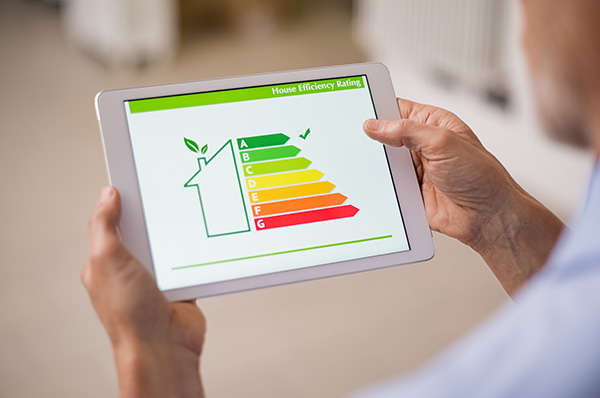
07/01/2024
Understanding the importance of energy efficiency is essential for making informed decisions about energy use in your home or business. As your natural gas company, it's our responsibility to help you understand this concept in a clear and relatable way. By being energy efficient, you not only save money, but you also contribute to a healthier environment and enjoy a more comfortable living space. And who doesn’t love savings and comfort?
Let’s break down the concept of energy efficiency, highlight the benefits of being energy efficient, and provide some tips to help you implement energy-saving measures in your daily life.
Defining Energy Efficiency:
Energy efficiency means using less energy to perform the same task, which reduces waste and saves resources.
Here’s a simple example to help define energy efficiency. Imagine it’s a very cold (or very hot day). Your goal is to keep warm air inside when temperatures outside are cold and vice versa for hot, summer days. If you leave doors and windows open, the environment you want to keep contained inside your home escapes outside. That means your heating or cooling unit are working longer and harder to keep you comfortable. The more they work to maintain your desired temperature uses more energy and costs you more money. Keeping doors and windows closed when you're heating or cooling your house is a simple step to being more energy-efficient!
The Benefits of Being Energy Efficient:
The benefits of energy efficiency are a smart choice for both your wallet and the environment.
Practical Tips
Regular Maintenance: Regular maintenance of your heating and cooling system is essential for ensuring optimal performance and energy efficiency in homes and businesses. Over time, dust, debris, and normal wear can affect a unit's efficiency, causing it to work harder. By scheduling annual maintenance with a qualified, licensed technician, you can benefit to help address minor issues early and ensure your system is operating at peak efficiency. Additionally, proper maintenance extends the lifespan of equipment, minimizes the risk of safety hazards like carbon monoxide leaks, and helps maintain compliance with warranty requirements.
Act-Now Energy-Saving Actions
Insulation: Adding insulation reduces the amount of heating and cooling needed to maintain a comfortable temperature, using less energy overall.
Efficient Appliances: Using high-efficiency units and appliances consume less energy and help keep savings in your pocket.
Smart Thermostats: Installing a smart thermostat allows you to adjust the temperature when you're gone or away. This helps reduce energy usage while maintaining comfort.
Low-Flow Showerheads: Installing a low-flow showerhead helps by using less water while still providing a strong shower stream reduces the energy needed to heat the water.